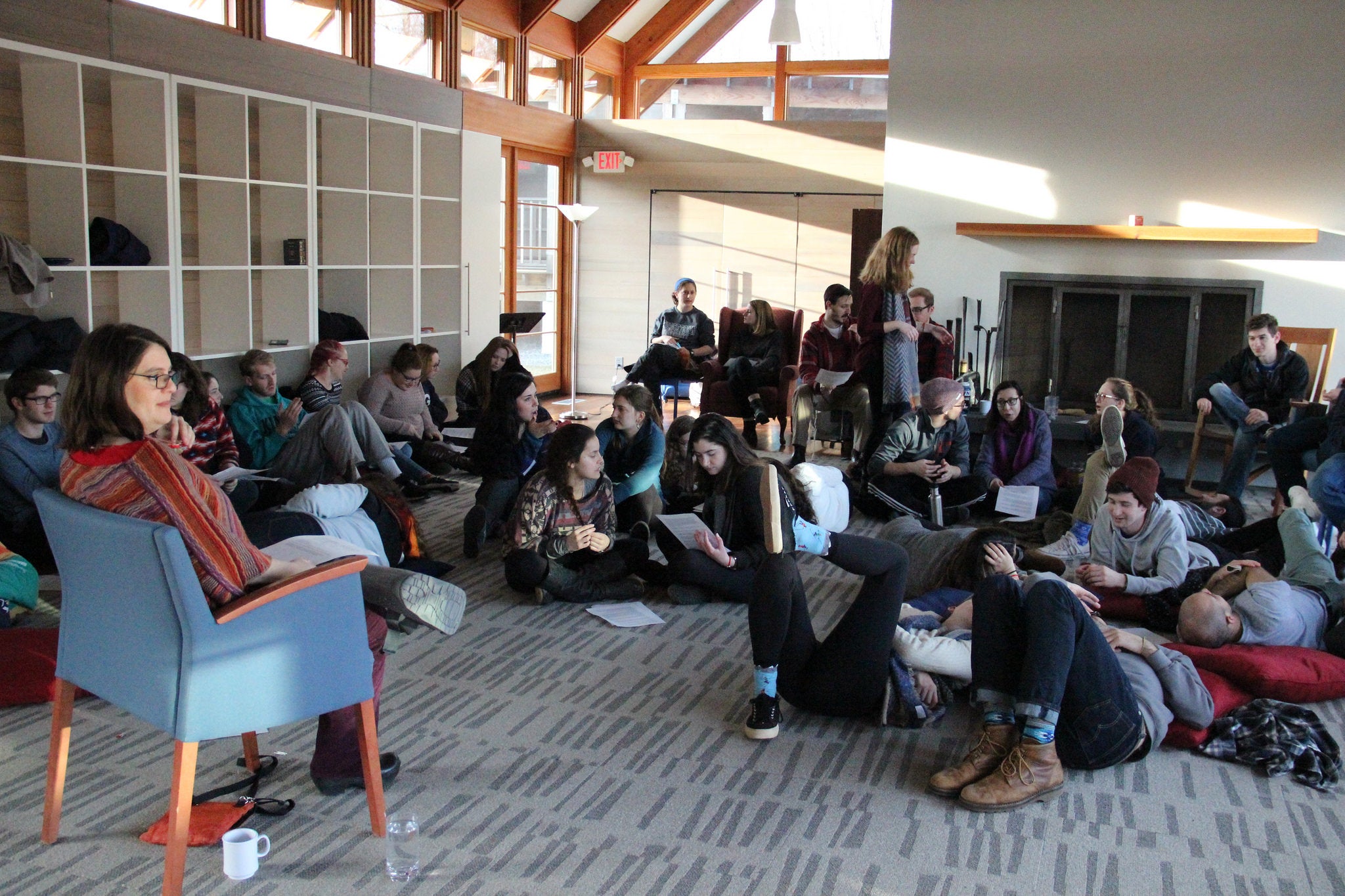Finding Nachas at the Jewish Life Retreat
Something we love talking about here at Georgetown is “cura personalis,” or care of the whole person. What exactly does this mean? For some, it refers to self-care: taking time to see friends, eating a well-balanced meal, writing in a journal. For others, it is caring about friends, family, colleagues in the emotional, physical, and spiritual realms. For me, cura personalis has taken on new meaning in my sophomore year. Freshman year, I did not embody cura personalis; I simply spent a lot of time obsessed with my grades and working alone towards that elusive 4.0. Now, my cura personalis is all about balance, working to fulfill myself emotionally and spiritually both alone and through interaction with friends, family, and staff.
One place I see cura personalis nurtured is on retreat. Georgetown’s retreat program is thriving, and I am grateful to be a part of it both as an ESCAPE leader and as a participant on our semi-annual Jewish retreat. There is something magical about being at the beautiful Calcagnini Contemplative Center (hats off to the architect, because it is photogenic as heck) surrounded on the outside by silence and stars and on the inside by a roaring fire and good conversation, that keeps people coming back.
We must be doing a good job because this spring because we had our biggest Jewish retreat yet; we had to add more spots because 40+ people wanted to go. This was proof that Jewish Life here is thriving. As a GUish intern whose main goals are student engagement and community building, seeing a bus bursting at the seams filled me with nachas — a Yiddish word meaning pride or gratification.
However, a more cynical part of me wondered: Would such a large retreat change the dynamic? Bigger could mean more cliquish — definitely not the vibe we hope to give off. And so I waited.
If I take anything from that overnight, it is the memory of around 30 of us sitting in a giant circle in the McKenna dining room, slamming on tables and singing at the top of our lungs all of the Jewish songs we know. Shaked and Ronit were sitting next to each other discussing what to sing next, Ari joined in every time because he knows the entire repertoire, Rabbi tried to delegate different vocal parts to actual good singers, and the rest of us sat clapping away and singing when we could. The circle continued to grow as more and more people came in: an impromptu sing-a-long. The sea of smiles conjured up an oddly familiar feeling — oh right, nachas.
Sometimes, the great things are not planned and obsessed over. They happen naturally, organically. It is up to us to seize these moments, to see them as cura personalis, and to realize how lucky we are to have the chance to stretch both our minds and our hearts everywhere we turn.
Written by Janine Karo, C’19.
